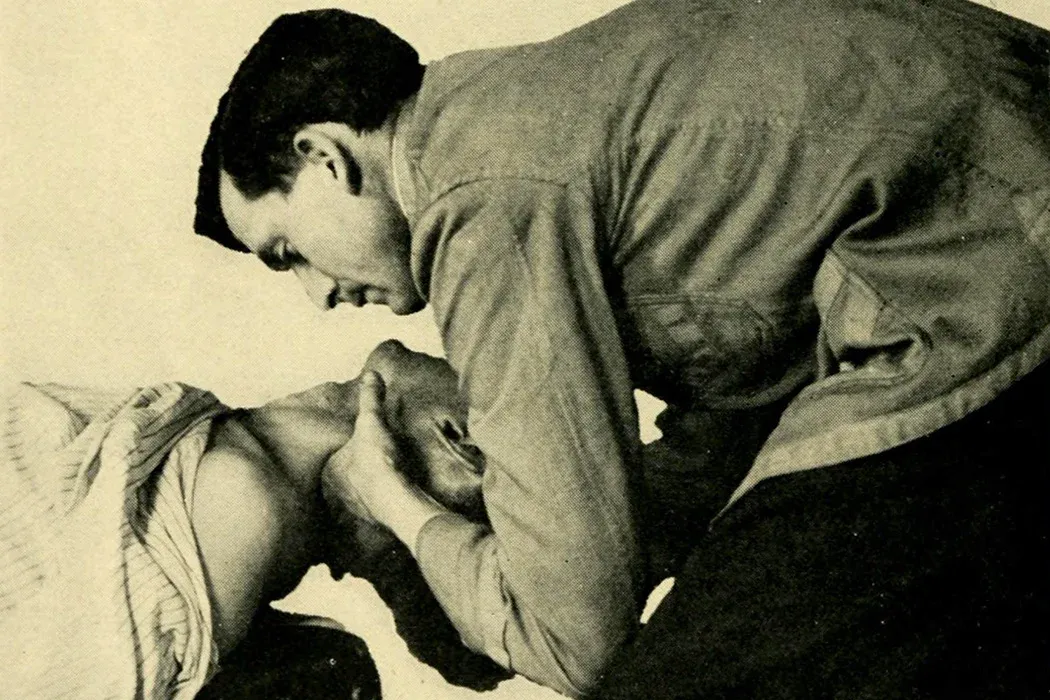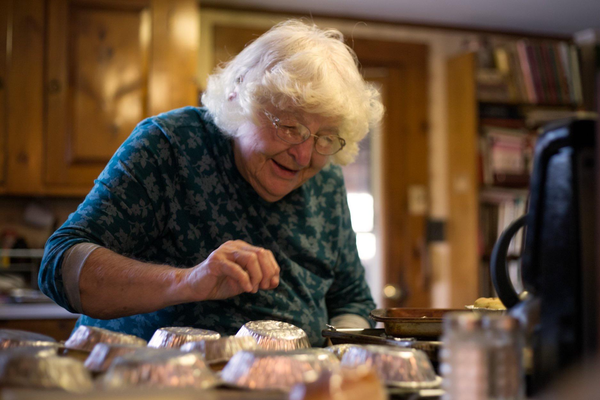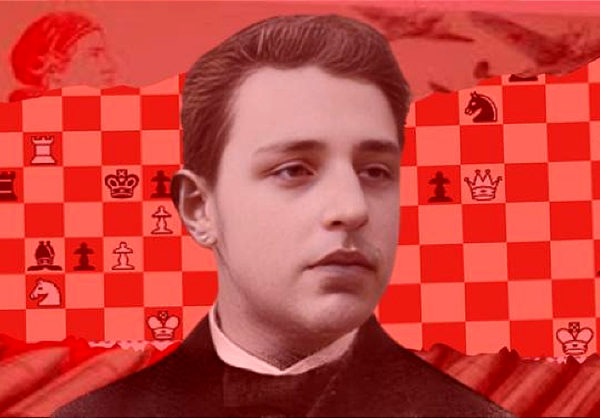The inventor of chiropractic thought of it as a religion

From JSTOR Daily: "Before he became the founder of chiropractic, Daniel David Palmer was a Spiritualist and practitioner of animal magnetism. Palmer claimed to have received communication from a deceased physician who taught him the principles of chiropractic—a term he invented in 1896, combining the Greek words cheir and praktos to mean “done by hand.” Palmer considered introducing Chiropractic as a religion in its own right but ultimately settled on describing it as an amalgamation of Christian Science and modern medicine. He wrote that it was based on adjusting the body to permit the free flow of “Innate Intelligence,” or just “Innate,” which he explained as “a segment of that Intelligence which fills the universe.”
One of the casualties of the Ukraine war is a seed bank that was founded in 1908

From LongNow: "An early victim of Russia’s invasion of Ukraine was the genetic riches of one of the traditional breadbaskets of humanity. In the first months of the conflict, Russian shells hit the Plant Genetic Resources Bank in Kharkiv. Founded in 1908, the gene bank preserved the seeds of 160,000 varieties of crops and plant seeds from around the world, and was the repository for many unique cultivars of Ukrainian barley, peas, and wheat. Tens of thousands of samples, some of them centuries old, were reduced to ash. Even under Nazi Germany, when the whole of Ukraine was under occupation, the bank was not destroyed. They knew their descendants might need it. After all, every country’s food security depends on such banks of genetic resources."
The story of a little-known airplane hijacking from the 1970s

From Narratively: "Roderick Hilsinger yawned and stretched. He had just wrapped up a whirlwind trip to Ethiopia, where he and his colleague, Dr. Richard Wylie, had given a presentation on a proposed exchange program with their employer, Temple University. Then he heard a woman speaking sharply behind him in Amharic, the official language of Ethiopia. At the sound of her voice, five men and another woman, spread throughout the cabin, all rose from their seats. They were armed with handguns. Hilsinger, scarcely believing what he was seeing, watched as a young man in the next row stood, raised his gun toward the man seated next to him and shot him at point-blank range."
Editor's note: If you like this newsletter, please share it with someone else. And if you really like it, perhaps you could subscribe, or contribute something via my Patreon. Thanks for being a reader!
Why this British man decided to turn his house into a homeless shelter

From The Guardian: "Stuart Potts is an unlikely do-gooder. He has a long criminal record (“mostly petty stuff”, he says), and has spent much of his life in and out of prison. For a period, he lived in a tent by the canal in Salford and in Manchester city centre. He was formerly addicted to crack cocaine. A stout, tough 43-year-old with close-shaved hair, he holds his body tightly: chest out, shoulders back, wide-open eyes darting about, observing and assessing as he talks. He speaks at a million miles a minute, swearing constantly, rattling off memories of being run over by a drug dealer, getting stabbed with a broken bottle, going to prison for kicking someone’s head in. Potts talks with the cynicism of someone who has hit rock bottom and had to pull himself back up."
An anthropologist on what freediving can teach us about ourselves

From Sapiens.org: "I had heard about freediving, but I thought it was a dangerous extreme sport I’d never try. That changed when I met Liv. I had always loved being in the ocean, and I took little convincing once I heard her talk about the unique feeling of freediving. Beyond that, I was anthropologically fascinated by why people might want to do something that seemed so counterintuitive: to hold their breath and fight all instincts to breathe in order to reach a new level of immersion. Over the course of numerous classes, I absorbed the basics of freediving and I learned to breathe again. To breathe as a freediver does—fully—and then to hold it until I couldn’t stand it any longer."
Until World War II everyone in New York had to move on the same day

From Now I Know: "Sometime in the 1600s or early 1700s, New York City developed an odd tradition. Leases, across the city, expired at 9:00 AM on the first day of May. The origins of this tradition are unclear. The entry in Wikipedia cites two different sources, one of which refers to the English celebration of May Day, and another which claims that the Dutch settlers originally came to Manhattan on May 1st, and the tradition was borne out of that. In any event, the cartoon above encapsulates the madness — thousands upon thousands of people taking to the streets, with all their stuff, moving from one apartment to another, all on the same day. It took a world war to end the practice."
Two pitchers played a game of tic-tac-toe during a Major League baseball game
Playing tic-tac-toe in the middle of a MLB game is beyond cool pic.twitter.com/2aeDb33cTP
— Baseball King (@BasebaIlKing) May 5, 2024
Acknowledgements: I find a lot of these links myself, but I also get some from other newsletters that I rely on as "serendipity engines," such as The Morning News from Rosecrans Baldwin and Andrew Womack, Jodi Ettenberg's Curious About Everything, Dan Lewis's Now I Know, Robert Cottrell and Caroline Crampton's The Browser, Clive Thompson's Linkfest, Noah Brier and Colin Nagy's Why Is This Interesting, Maria Popova's The Marginalian, Sheehan Quirke AKA The Cultural Tutor, the Smithsonian magazine, and JSTOR Daily. If you come across something interesting that you think should be included here, please feel free to email me at mathew @ mathewingram dot com



